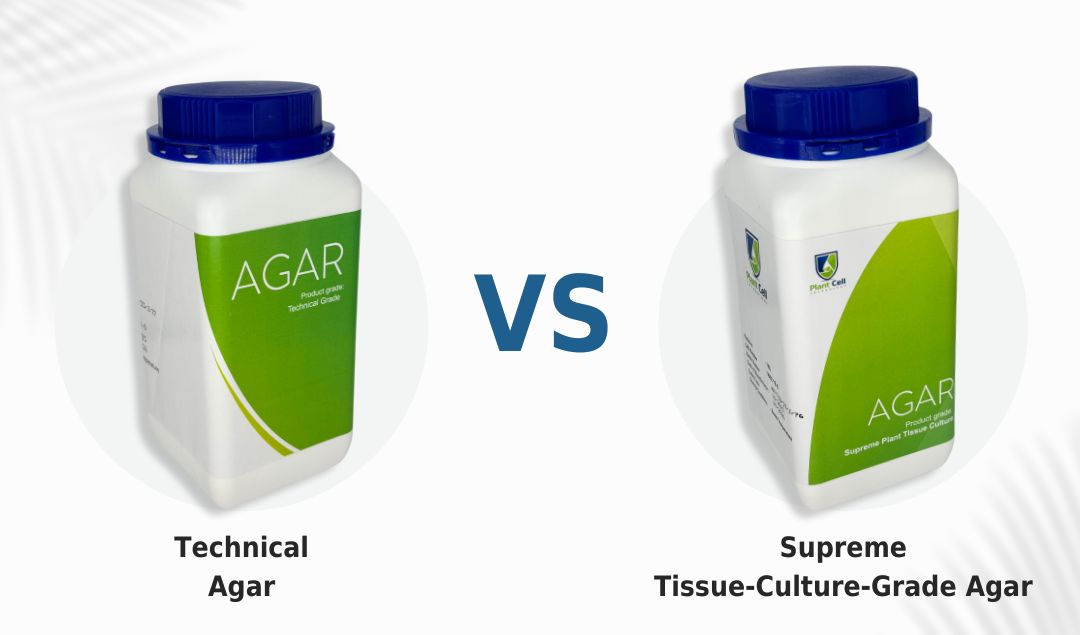
Introduction to Tissue Culture of Medicinal Plants (Part-1)
As a content and community manager, I leverage my expertise in plant biotechnology, passion for tissue culture, and writing skills to create compelling articles, simplifying intricate scientific concepts, and address your inquiries. As a dedicated science communicator, I strive to spark curiosity and foster a love for science in my audience.


Overview
Since ancient times, plants have been a part of our lives, serving as the source of food, medicine, flavors, textiles, furniture, and whatnot!
Ancient records of the use of plants for medicinal purposes can be found in the writings of Chinese, Egyptian, Indian, and Roman civilizations. And today, several studies of medicinal plants in treating a spectrum of ailments have been reported by scientists.
From labs to pharmaceutical industries, compounds derived or isolated from plants are used either directly or indirectly in manufacturing different types of medicines. It is so because chemical synthesis or some compounds are either not possible or it’s not economically viable.
According to the World Health Organization (WHO), around 80% of the population in developing countries use medicinal plants in their primary health care system. This can be because of the availability, accessibility, and affordability of plant-based products. Moreover, because of the over-exploitation of several medicinal plants, either they are extinct or on the verge of extinction.
This article presents an overview of the plants that are used as medicinal plants worldwide and how tissue culture plays a role in extracting the most out of these plants and at the same time protects their heritage.
Some Known Medicinal Plants and Their Uses
Here’s a table listing some known medicinal plants and their uses in treating several ailments and diseases:
| S.No. | Plant Name | Uses |
| 1. | Curculigo orchioides | Used for Jaundice, Asthma, Piles, Diarrhoea, Spasmolytic, and anti-cancer |
| 2. | Asparagus adscendens | Treating chronic leucorrhoea, Asthma, fatigue, spermatorrhoea, Diarrhoea, Dysentery, Senile pruritus, and have Insulin-enhancing activity |
| 3. | Ceropegia candelabrum L | Has a role in treating Diarrhoea and dysentery |
| 4. | Baliospermum montanum (Willd.) | To cure skin disease, snake bite, bronchitis, jaundice, asthma, and abdominal tumors. |
| 5. | Woodfordia fruticosa (L.) | Treating Dysentery, rheumatism, anti-tumor, and anti-HIV. |
| 6. | Centella asiatica (L.) | Healing wounds and treating diarrhea, eye infections, and partial relief from leprosy. |
| 7. | Labisia pumila (Bl.) F. Vill | Treatment of flatulence, dysentery, dysmenorrhoea, and gonorrhea |
| 8. | Artemisia vulgaris L | Treating liver disorders, choleretic and for amenorrhoea and dysmenorrhoea, diabetes, epilepsy, psychoneurosis, depression, irritability, insomnia, and anxiety and stress. |
| 9. | Rauvolfia serpentina L. | To treat High blood pressure, insomnia anxiety, and central epilepsy |
| 10. | Melaleuca alternifolia | Function as Antimicrobial, Antifungal and Anti-inflammatory |
| 11. | Vitis thunbergii | Role in Arthritis, Eye irritation, and Hepatitis |
| 12. | Aloe vera | Have a role in treating Jaundice, Acne Ulcers, and Burn Injuries |
| 13. | Piper longum | Function in cough, asthma, and indigestion |
| 14. |
Ocimum sanctum |
Used for indigestion, respiratory diseases, and heart diseases |
| 15. | Azadirachta Indica | In treating Intestinal Worms, Leprosy, Eye Bloody Nose, and Disorders |
Role of Tissue Culture in Growing and Protecting Medicinal Plants
Many medicinal plants are grown and exported in a range of approximately 3 thousand tonnes to 7 thousand tonnes for pharmaceutical purposes across the countries. This extensive use of plants can also lead to their extinction or make them endangered.
Some medicinal plants take several years to grow or do not produce in certain climatic conditions using seeds or vegetative propagation. Plant tissue culture plays an essential role in the protection and mass production of these plants. It is based on the concept of totipotency, which is the ability of plant cells to develop into a whole plant.
Some of the advantages of tissue culture are:
- It has a higher rate of plant multiplication.
- It allows the production of disease-free plants.
- It’s easier to grow plants in huge numbers just by using a few plant tissues or cells.
- It allows control of the environment of cultured plants and provides them with specific requirements or needs.
- It’s easier to identify and clone plants with specific characteristics using tissue culture.
- It easily facilitates the mass production of secondary metabolites that are used in manufacturing medicines.
- Using the technique plants can be grown in any season irrespective of their season. So, this makes the year-round availability of plants around the year.
- It allows the production of new and improved plant varieties in conjunction with genetic engineering techniques.
- It’s an efficient technique to conserve endangered or rare plant species.
- It allows the preservation of plants’ original genomes using cryopreservation techniques.
The tissue culture of medicinal plants follows the same basic tissue culture steps, which includes:
- Collection of plant material
- Surface sterilization of explant
- Establishment of plant culture
- Multiplication of plants
- Rooting of regenerated plants
- Acclimatization of plants
- Transfer of plants to fields
In the second part of the article, we will discuss in detail about all the above-mentioned steps and talk about the tissue culture techniques that have been used to grow the medicinal plants.
How Plant Cell Technology Is Helping Culturists Worldwide In Their Tissue Culture Application?
Plant Cell Technology is helping tissue culturists around the world by providing unique and world-class products and services that smoothen their process. It has MS media, plant growth regulators of all types, agar, gellan gum, culture vessels, and masks in its store to facilitate your processes.
And, that’s not it! Plant Cell Technology also offers consultation services to culturists of all sizes that help to get instant solutions to your tissue culture problems.
So, visit plantcelltechnology.com today and find out more about our product and services and how they help you to excel in your tissue culture processes.
Happy Culturing!!
Blog Categories
View by Level
Popular Blogs

6 Plant Tissue Culture Books to Keep Learning
Introduction Most of us are fans of books when it comes to learning a topic in detail and in a...
Read More
New Technical Agar Vs Supreme Agar
Introduction What’s the secret element that supports and holds plants in vitro? Not sure? It’s the solidifying agent. Solidifying agents...
Read MoreSubscribe to Our Newsletter







Join the conversation
Your email address will not be published. Required fields are marked